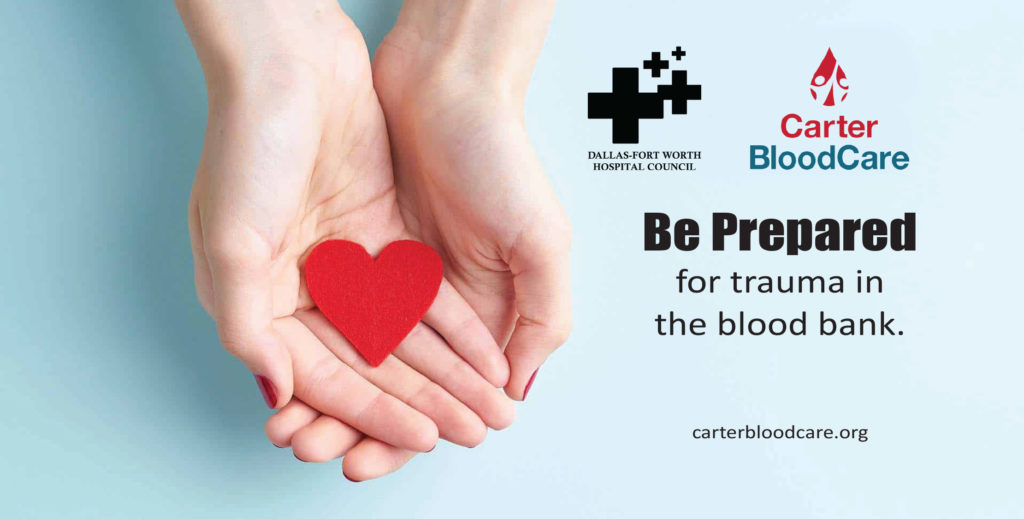
Long-time DFW Hospital Council (DFWHC) partner Carter BloodCare announced in June that due to the ongoing COVID-19 pandemic, the North Texas blood shortage is the worst they’ve seen in decades. For the remainder of 2021, DFWHC will post regular blogs detailing the blood shortage and opportunities in the community to donate blood. Spread the word!
Trauma is inevitable in medicine. It is important for patients to have adequate access to trauma resources for optimal care, when injuries and accidents happen. In Texas, hospitals are designated with trauma levels – ranging from I to IV – with the number indicating the extent of trauma care available at each facility. For example, a Level I trauma center provides the most comprehensive care for patients presenting with both minimal and severe traumatic injuries.
Community blood centers and hospital blood banks must be able to support trauma services with enough blood products readily available for each hospital to remain prepared to take care of patients presenting with emergency medical injuries. When working with hospitals, blood centers like Carter BloodCare pay special attention to the facility’s trauma designation level because it impacts their emergency blood transfusion needs.
Each state is involved in its own hospital trauma designation, along with help of the American College of Surgeons (ACS). The ACS states that a Level I trauma center must admit at least 1,200 trauma patients yearly or have at least 240 major trauma injury annual admissions (remember not all trauma injuries have similar severities, some may be minor injuries). In the DFW area, there are multiple Level I trauma centers counting on the blood center to have blood available whenever it’s required – even at a moment’s notice. If you are interested, you can find the different designated trauma facilities and their designation level throughout Texas on the Texas Department of State Health Services website.
Additionally, many trauma centers require a greater amount of blood products with the universal blood type, for emergency transfusion to patients with unknown blood types. This means trauma centers require a larger supply of blood type O red blood cells. This is one more reason why a severe blood shortage, like the one we’re experiencing locally and nationally, is life-threatening. Blood is essential and we cannot manufacture it.
So, when thinking about the emergency medical needs of the community, remember blood centers provide an indispensable service toward emergency preparedness. And we do it by relying on generous blood donors to ensure patients presenting with major traumatic injuries can get the life-saving blood they need. Make an appointment to donate by texting or calling 800-366-2834; or visit CarterBloodCare.org.
Carter BloodCare: Being prepared for trauma in the blood bank
09/24/2021